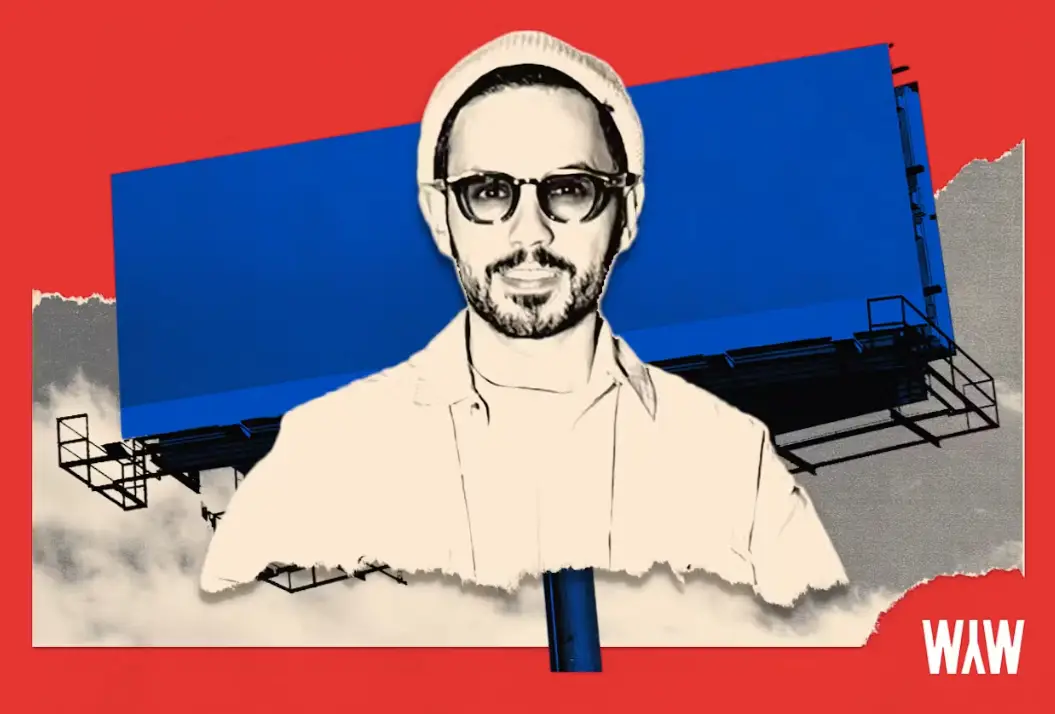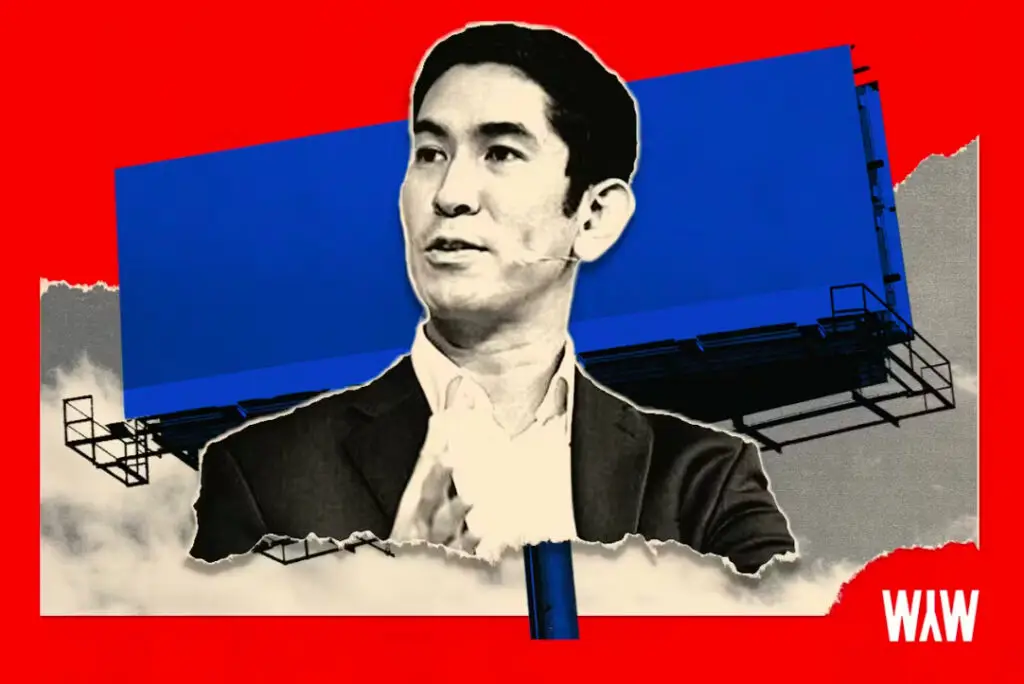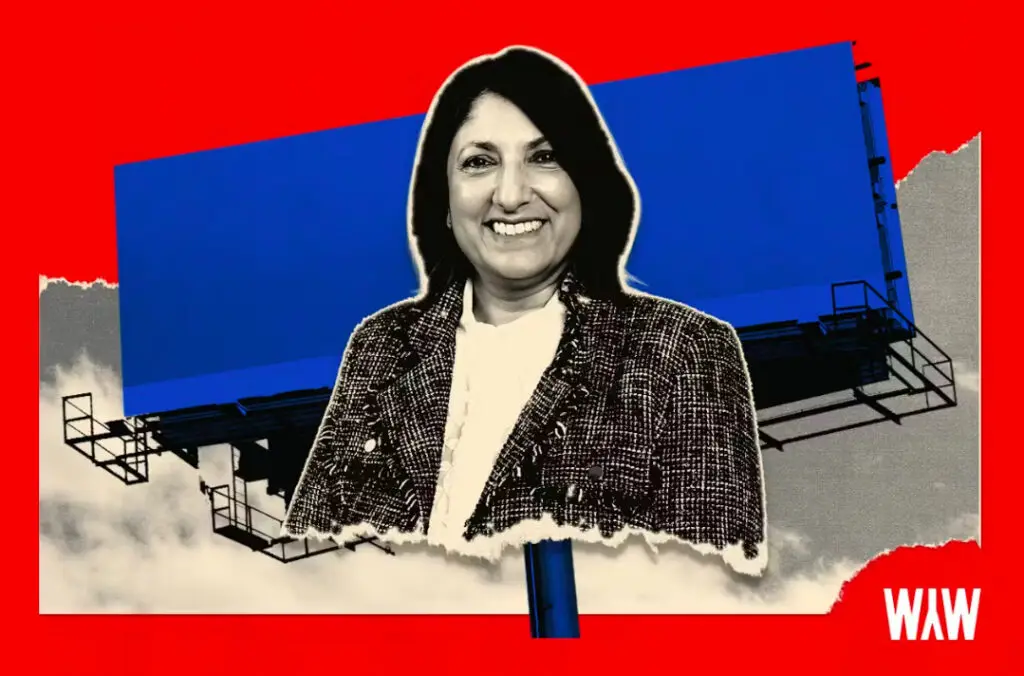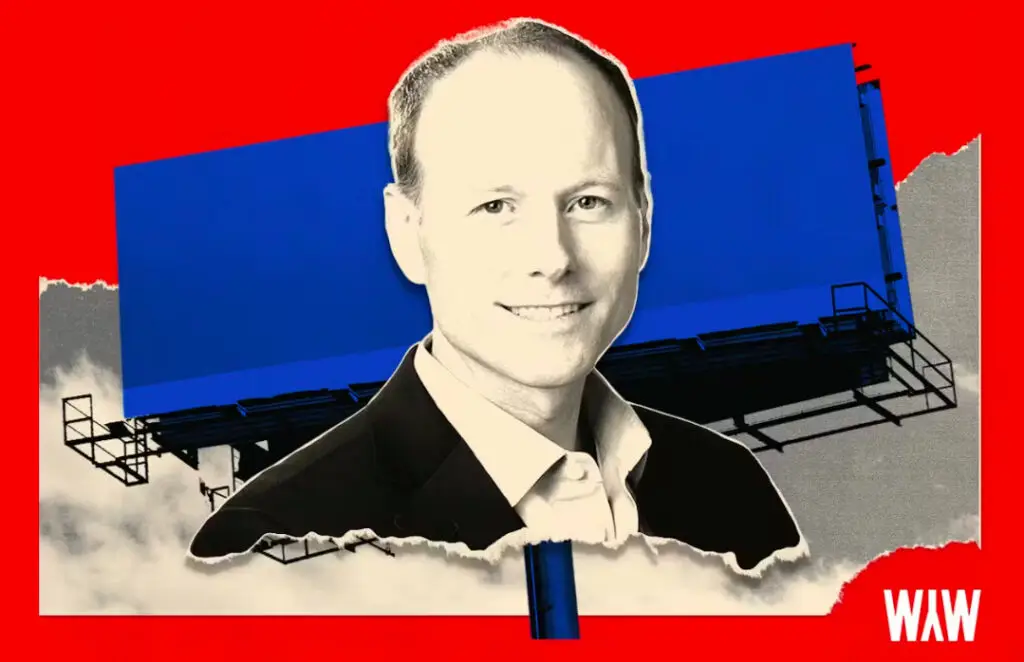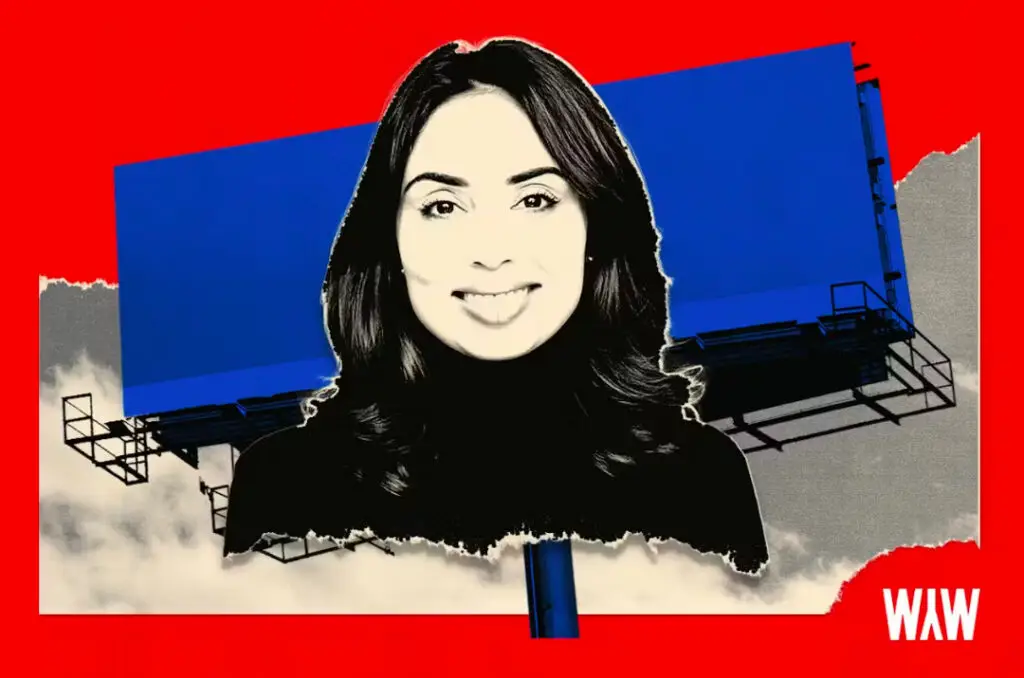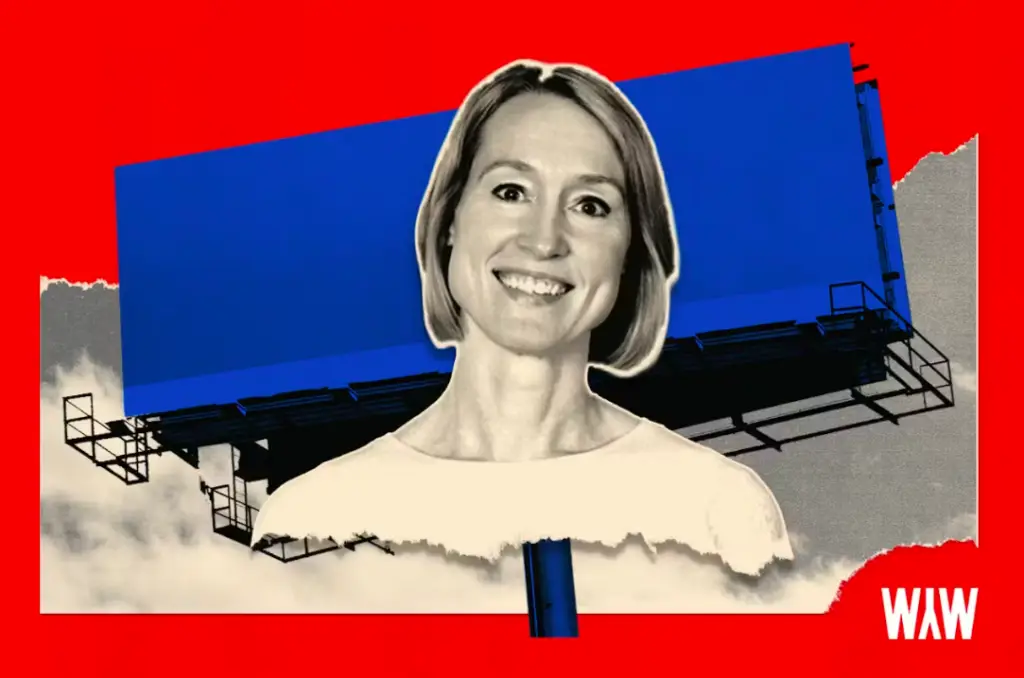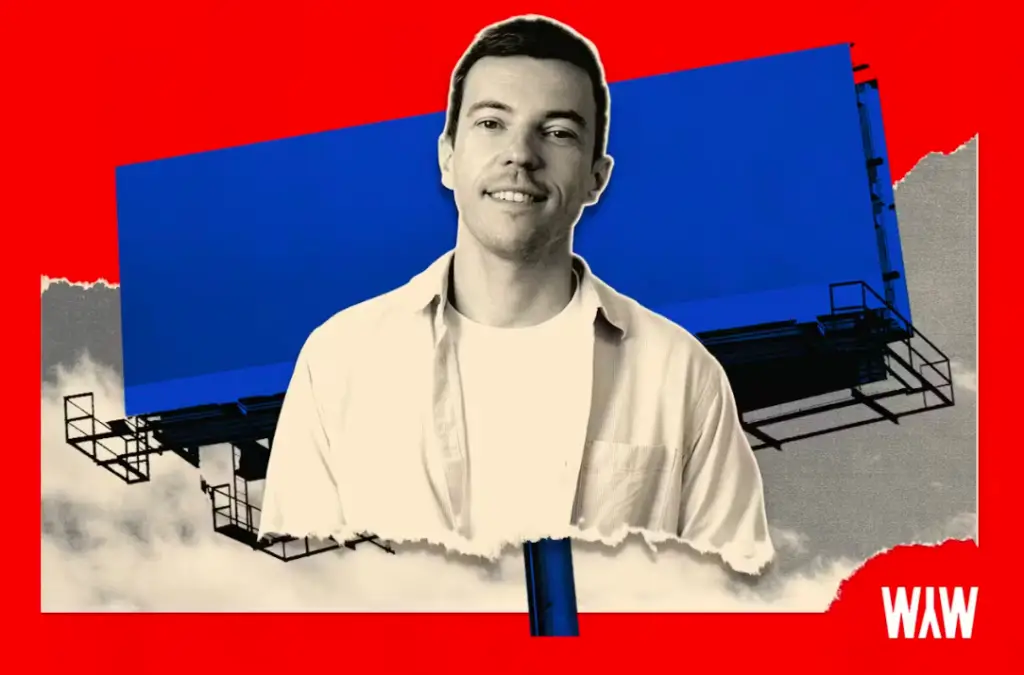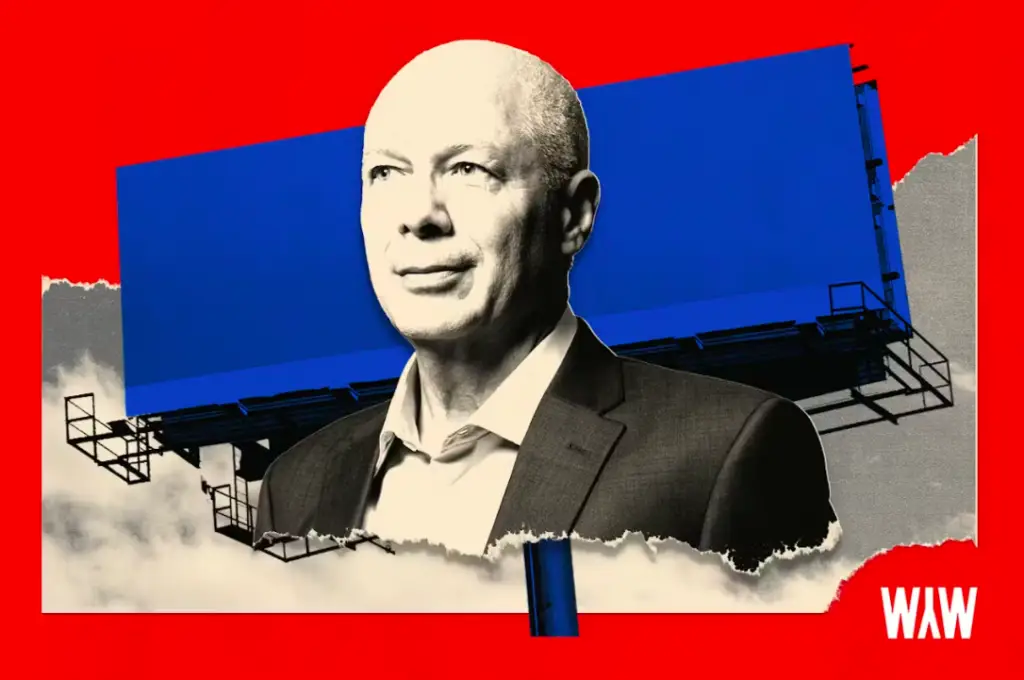The fintech’s VP of marketing tells Tim Healey how Monzo is turning customer love into growth, why creative risk and emotional insight matter more than polish, and how the brand’s ‘Money Never Felt Like Monzo’ platform redefines what banking feels like.
You’ve worked at Ogilvy, McCann, Clemenger BBDO, The Lion’s Share and Klarna, and now lead marketing at Monzo while serving on Spotify’s Advisory Council. Can you walk us through your career journey?
I started my career in advertising with the Ogilvy Fellowship, a three-year graduate scheme where you move through different agency groups and offerings – a great communications university. I got exposure to multiple industries at speed, working on everything from Unilever to Phillips, and quickly learned what I enjoyed and what I didn’t. Many of my cohort went on to great things, like Cressida Holmes-Smith, now CEO of Lucky Generals.
Next, I moved to McCann, where I led the Xbox business and helped build the engine of creativity on that account. We worked on projects that became multi-award-winners. That success took me to Australia, where I became GM at BBDO across Melbourne and Sydney, leading the Mars business and joining the agency executive team.
After working there, I pivoted: I didn’t want to stay working on the agency side. An opportunity arose because of a stupidly simple idea that a friend of mine had, which I just had to help make happen. It was called ‘The Lion’s Share.’ We wanted to create a fund where animals get paid to be in advertisements. One-in-five commercials feature animals, but they don’t get paid for that work .It just didn’t seem right.
We managed to get a meeting at the UN to pitch our idea: wouldn’t it be great if the private sector paid back the animals that they’re benefiting from? The UN agreed. I spent a couple of years recruiting brands like Gucci, Cartier, Mars and JCDecaux. We raised nearly $20m, with David Attenborough as spokesperson, and won a Cannes Grand Prix.
Thanks to some serendipity this led to me connecting with the founders of Klarna, and it was a time when my wife and I were ready to move back to the UK from Australia. I became what was effectively their first UK CMO. It was a period of colossal growth, with Klarna being made available in 35 markets. But that huge growth came with some big organizational decisions – including layoffs. The numbers were considerable, and some of the reasons didn’t make sense to me.
On leaving, I met TS Anil (Monzo’s CEO) and Sujata Bhatia (our former COO). They were looking to make their first major marketing hire. I joined in January 2024 after a few months of collaboration.

AJ in conversation with The Drum
What makes Monzo different?
I’d say that we are the UK’s leading digital bank that lives in your pocket. Our mission is to make money work for everyone. We have an ambition to build one app that can essentially allow customers to manage their entire financial life and help them move forward. 10 years ago, we set out to disrupt the banking category that we felt was failing customers. Today, we’re the winner of the British Bank Awards as not only the best banking app, but the best bank as well.
Still, I feel like the broader category continues to fail customers. Our mission is to co-create the banking system that our customers want to see and that serves them well. Our bank needs to serve individual customers and businesses – and not just be a bank that they like, but one that they love.
We’ve hit 13 million customers in the UK today, meaning that one in five adults in the UK and one in nine businesses are using Monzo. My favorite statistic is that our customers are seven times more likely to use the word ‘love’ when they talk about Monzo compared to any other bank. In a world of inertia and lack of engagement, that’s pretty impressive. We’ve also won awards like brand of the year. Seeing how that love generates success for the business is rewarding.

Monzo’s London HQ.
You don’t often hear the word ‘love’ associated with a bank. Last year, profits increased 8x to £113.9m, Monzo acquired 2.4 million new customers, and customer deposits increased 48% to £16.6bn. What does the next year look like for Monzo?
It has been a landmark year. Building on that customer love is a key part of the year ahead. Organic growth continues to be a huge flywheel component for us. 67% of our customer growth comes through organic word-of-mouth referrals.
Our job is to amplify what we know to be true: We don’t say ‘we’re the most loved bank’; we find ways to bring that to life for our customers and show that we offer a better alternative.
Last year, we focused on investing in our brand with our new platform, ‘Money never felt like Monzo.’ We explored the juxtaposition of what money feels like in the incumbent old banking services that you’re used to, versus how we know it is better with Monzo.
If last year was about setting the scene and driving that fame and brand awareness, then this year is about evolving that platform to talk about our product in more meaningful ways. If we talked about ‘money never feeling like Monzo’ last year, this year we might talk about how ‘investments never felt like Monzo’; ‘saving never felt like Monzo’ and ‘kids’ banking never felt like Monzo’.
We also have big global ambitions. If last year was all about painting the UK in Monzo’s hot coral, the year ahead is painting the world hot coral.

The Monzo banking app fuses customer needs with optimised user experience.
How’s your marketing team structured?
Beyond what you’d expect from the traditional setup, we’ve separated our team to marketing and growth. I look after both at Monzo. It covers everything from brand, social, content, CRM, customer life cycle and product marketing. It also includes referrals and network effects, which are the ‘Monzo-to-non-Monzo’ interactions. For example, when you split a bill for the first time or when you want to have money paid back to you.
I’m also responsible for driving virality through product growth. So, in addition to the typical roles that you have, there’s also managing products from engineering and all of the data in our organization.
Drawing on your leadership expertise, what has your career taught you that helps you to create and maintain a great team?
I would say that the number one is: ask for forgiveness, not permission. The biggest leaps that have happened in my career have come through taking my own initiative. Even in my role now, the most exciting moments are when members of my teams come forward to me with entrepreneurial ideas. It shows that they’re thinking about the business in different ways, and I think that is where great ideas can prosper.
When teams act and behave in that way, I try to lead with authenticity and vulnerability and maintain a space for people to have a safety net: they must feel comfortable so that they can be their true selves at work. This yields better relationships and stronger results: people feel safe to fail as well as to succeed.
The other leadership piece is providing the framework, strategy, goal posts and metrics that the business needs to achieve. Once set, you empower. You give your teams and the squads the freedom and autonomy to go and get them – and then get out of the way. Obviously, we’ll check in on them along the way, but ultimately, they have the autonomy to go and deliver.

Sir David Attenborough was the Special Ambassador for The Lion’s Share.
What’s your first memory for marketing success that you were part of, where you felt: this is the role for me?
With Lion’s Share, we had this eureka moment: there was an injustice happening in the world. Animals were being wiped out, while businesses and private sectors were profiting from their image.
What started as a conversation in Sydney then turned into a UN-backed fund, making $20m with Sir David Attenborough recording content for us, and then having discussions around how to spend the money and create impact and help with biodiversity causes.
That was a unique moment when a creative idea and a marketing concept turned into a real thing with real impact. It was a combination of great people, a great network, and fire in the belly. When it all came together, I remember feeling, ” Wow, I want to do more of that.”
A common issue senior marketers encounter with marketing teams is what people describe as ‘silo mentality’. How do you avoid it?
I’ve been fortunate to work in organizations that are a bit younger. Monzo has just turned 10, so I haven’t experienced that ‘silo thinking’ first-hand. The number one thing that we try at Monzo is to build strong relationships on a personal level. This allows you to be a bit more forthcoming with feedback if anything were to arise.
I also spend quite a bit of time investing in my CMO network. Once a month, I meet up with someone that I know well, that can be another CMO or it might be a media owner. We meet to swap stories: what’s working in your org, what’s not, and challenge each other’s thinking. For example, you recently interviewed Naomi Walkland from Motorway. We meet up regularly.
I also make time to attend events, like your Little Grey Cells briefings. I meet new people and use these conversations to learn things. If I did have issues around ‘silo mentality’ at Monzo, I would consider my own solutions, then challenge that by seeking counsel from my networking and asking, “Hey, have you experienced this before? What do you think?”


Listening to customers is a core pillar of Monzo campaigns
Could you tell us about a customer research discovery you made that you found surprising?
When we did the brand positioning work that led to our ‘Money never felt like Monzo’ platform, we discovered how emotionally charged money is. One in three people would rather deep-clean their bathroom than check their savings account.
To me, that was a ‘light bulb moment’. People would rather put on their rubber gloves and scrub their toilet seat than open an app on their phone. So we dug in deeper with our research and asked what people really feel about money. The answers were anxiety, stress, avoidance.
Very few people are thinking about their future and ‘tomorrow being better than today,’ which is the more typical line taken by financial institutions. Most people are just trying to get through today. Building on that insight felt true to who we are.
At Monzo, we do lean into the taboo. We’re ‘human first’ in our approach to marketing, products and brand. But I don’t think we’d ever had that sort of clarity of thought before in research, and it was a great moment. It enabled us to build our current platform.

Monzo’s impressive accolades have been celebrated in recent campaigns.
NatWest undertook some research and found that the average amount of savings per person in the UK is £200.
It’s crazy. And then, equally, those who may have the £200 saved leave the amount sitting dormant in an account. That money could work for them in meaningful ways if they let it. When I think about Monzo’s unique selling point: the more you engage with us, the more we want to make your money work for you. We want to get to a point where all of that is happening on autopilot, in the background: your money’s working for you, the interest is working for you, the interest on your interest is working for you, versus money that sits there doing nothing.
What advice do you have for senior marketers when they get pushback from the boardroom?
Always be prepared. Know your numbers. Know the ROI and value of the marketing work you’ve done and what that has delivered for the business. Start with the key impact and conclude with the outcomes that connect to the different budget asks that you’re requesting.
I work very closely with our CFOs. It’s super important to align with them. You need to be speaking their language – lifetime value, customer acquisition costs – metrics that connect your initiatives to real financial deliverables.
Ahead of a meeting, if there are going to be new people in the room or if I’m meeting a new board member, I will also run through some hypotheses with GPT to see what types of questions I might get and make sure I am prepared. This helps me anticipate what they might ask so that I am not blindsided by a question that I might not have thought about.
What myth about marketing would you most like to bust?
The myth I would most like to bust is that marketing only cares about creativity and isn’t a commercial driver for the business. When marketing works well, it is creative, of course, but it drives growth and creates impact. Marketing helps to drive product diversification and ultimately brings in new customers, enabling organizations to grow.
What advice would you give your younger self if you could go back in time?
I would say slow down. It’s not a race. And when I’m at home and I am not working, put your phone down and be present.
Would your younger self have listened?
So if ‘me’ from the future is talking to my younger self, maybe. But anybody else? Probably not. Too many people go through life like workhorses. Slowing down is so important. Life is not a race.
Even though I have a great leadership team, and amazing team members, I still don’t make enough time to pause and reflect – not just about work but also about career progression. We all should take some time out and think. How are things going? What’s the right thing to do next?


Recent campaigns have shown customers know how much easier life can be when banking with Monzo.
What question would you like me to ask the next senior marketer that I interview?
What’s the last marketing risk you took that genuinely scared you?
Your question from a senior marketer is: what will your role be like in five years’ time?
I don’t think five years ago I would have been able to predict what I’m doing right now or where I am in life or career-wise. My time at the UN was five years ago. I had no kids then – I have two now. So in my personal life and my career things have really changed.
And then there’s the rate of AI innovation. You hear about new platforms and new technologies today and by next week, they’re a commodity. It’s very hard to predict how things will have changed in five years: I am sure that marketing will continue to be massively affected by new technology.
I’d like to think that I’d still be doing some version of marketing. In my mind, marketing means championing positive customer outcomes and having a role where I put the customer at the heart of what I do, but I may be served by many different agents, doing many different things automatically for me as a result of this crazy world of technological advances that we are in now. But the thing that won’t change is the truth of my role: being a champion of people.
How do you surf the tsunami of marketing technology?
It’s complicated. I’m in a fortunate position at a digital company – we don’t have legacy stacks. The stack we have today is as good as it should be. We have invested in great leadership; I have a wonderful director of marketing technology. She needs to have the support of both marketing and engineering to be able to thrive in her role, because it impacts all the business disciplines.
I also invest in learning. I’m good at going to conferences. I find the time to listen. I also take the time to play with tools. I find it is a combination of finding out interesting things, meeting suppliers and seeing case studies and then carving out time to have a play. If that all works, then we build the business case for them within the business.
If there is one thing you know about marketing… it is?
The context switching is real, and every 30 minutes is different, let alone every day.
You might die tomorrow so make it worth your while. Worth Your While is an independent creative agency helping brands do spectacular stuff people like to talk about. wyw.agency.
This interview has already appeared in The Drum. Discover the best campaigns, industry insights and interviews from world-leading marketers, creatives and more.

